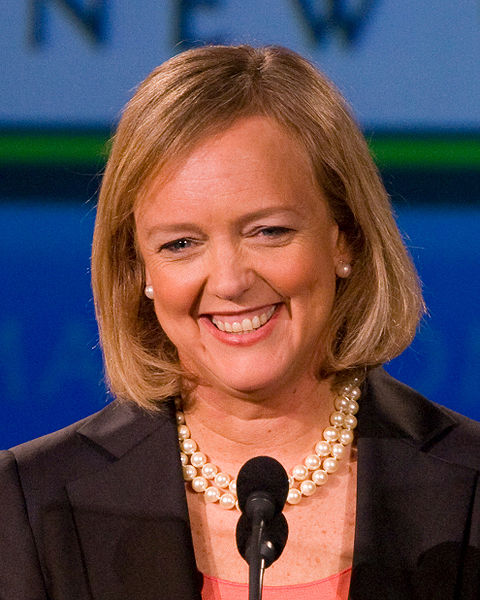HP Still Does Not Know What to Do With webOS
HP's Chief Executive Officer has admitted the company is still unsure as to what to do with webOS.
Though HP just this week offered developers a discount on TouchPads, it seems the future of webOS is still uncertain. Newly appointed CEO Meg Whitman has said that the company is still at a loss as to what to do with webOS. Speaking to a room full of HP employees, Whitman said it's not immediately obvious what the company should do with the mobile OS it acquired last year. The Verge reports that Whitman was speaking at an all-hands meeting last night, apparently scheduled to make a decision on webOS. However, it seem the company will be putting off the decision once more.
"It's really important to me to make the right decision, not the fast decision," the Verge cites her as saying, adding that a decision on the fate of webOS would come in the next three to four weeks. Whitman said part of the reason for the delay was that she needed to first decide whether the company was going to sell or spin-off its personal systems group (the company ultimately decided to hang onto its PC business). While she offered no clue as to what her thoughts on webOS might be, Whitman did say that if HP decides to keep it, it's going to do it "in a very significant way over a multi-year period." Whitman conceded that this would be a very expensive proposition but assured assembled employees that "HP can make that bet."
The news follows HP's decision to offer webOS developers 32GB TouchPads for $150 each in an apparent attempt to keep them sweet. However, there has also been reports that HP plans to sell the OS off to the highest bidder. Reuters this week reported that the company wants to sell webOS in order to recoup some of the money it spent acquiring Palm. HP bought Palm for $1.2 billion in April of last year. At the time, HP was excited to acquire the webOS platform and then-CEO Mark Hurd was quoted as saying webOS was the reason for the purchase. Reuters this week cited sources that said Bank of America Meryll Lynch is advising the company on potential buyers. Interested parties are rumored to include Amazon, RIM, IBM, Oracle and Intel.
Get Tom's Hardware's best news and in-depth reviews, straight to your inbox.

Jane McEntegart is a writer, editor, and marketing communications professional with 17 years of experience in the technology industry. She has written about a wide range of technology topics, including smartphones, tablets, and game consoles. Her articles have been published in Tom's Guide, Tom's Hardware, MobileSyrup, and Edge Up.
-
Belardo This is why she gets paid the BIG BUCKS!!Reply
Wait... wasn't she running for office? Oh yeah, she's a tea-bagger.
She's marginally smarter than the last moron.
HP = no confidence. -
FlayerSlayer I loved my Palm Treo. I loved my Palm Pre. I eventually had to switch to Android because there was no app support for WebOS, largely because there also was no hardware support for that absolutely garbage hunk of plastic. The OS was phenominal and I still miss it almost daily trying to use my Android handset, but Palm released it on junk equipment with no real support. HP bought it and did absolutely nothing with it, then destroyed what little confidence there was in the brand as fast as possible. Then they killed it, brought it back, killed it again, hinted that they wanted to revive it more, talked about selling it, held onto it, talked about killing it again, decided not to close that division, offered incentives to developers, and now want to kill it again, or maybe not.Reply
Good god! I love WebOS, but I'm wishing they'd just kill it cleanly rather than defiling the corpse month after month. -
estebanhillcoat "HP Still Does Not Know What to Do With HP"... give HP Apple or iOS and they ll ruine it in a month.Reply -
estebanhillcoat samsung, ibm or even NINTENDO should buy WebOS. It s by far the only serious alternative to iOS. Android is pure inconsistency, fragmentation and offers a user experience that is below the first iphone standardsReply -
Nintendo could use a bump in mobile handset gaming with their portable gaming dominance is now cracking. webOS would really fit in magically considering Nintendo is (or was) big in portable gaming. They could use their powerful global brand and meld that with the promise of webOS.Reply
To be fair, webOS was not a failure. It didn't have the right convective ecosystem from that of HP and Palm was already running on fumes when it was conceived. HP's only innovation to add was to integrate webOS to its printers? Oh wow!
So if Nintendo wakes up and smell the coffee they would contact Meg and make a fair offer for webOS and move that division to Seattle (or San Diego for that matter where I am ;)
-
hrudy The further adventures of a clueless company. Can't figure out what to do with Web OS ? Really??Reply
Sort of reminds me of Apple before Steve came back..
No vision..
